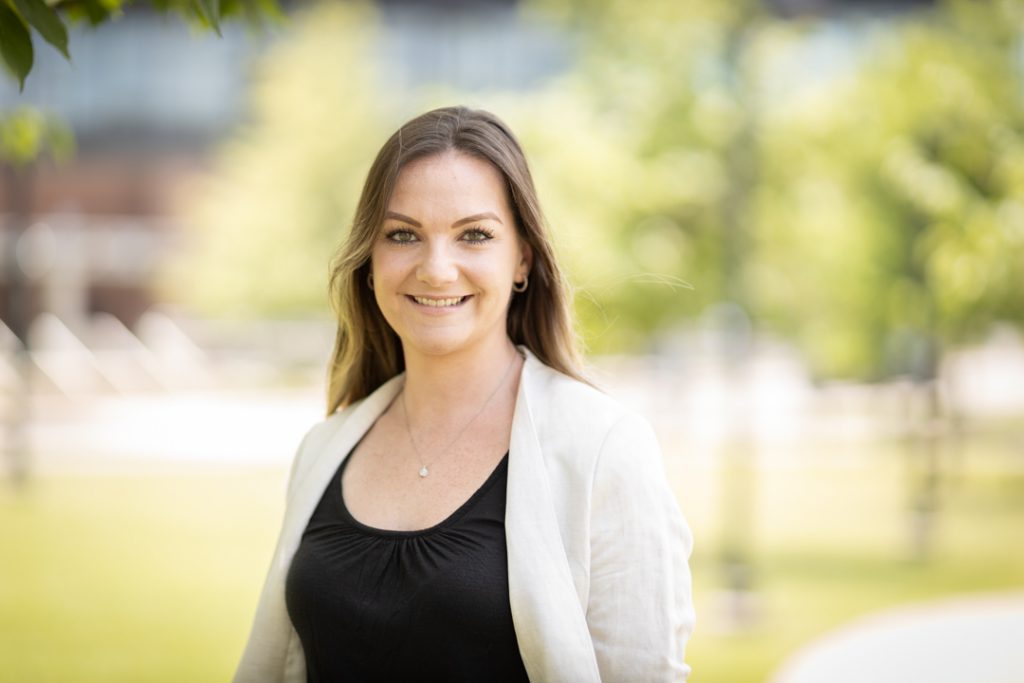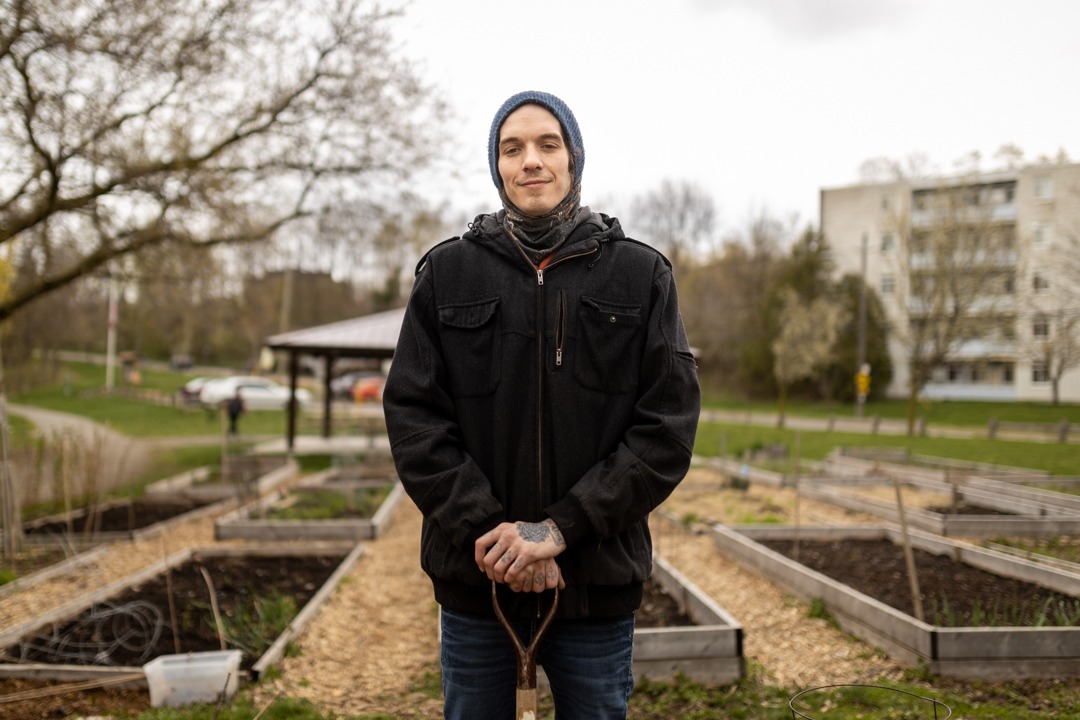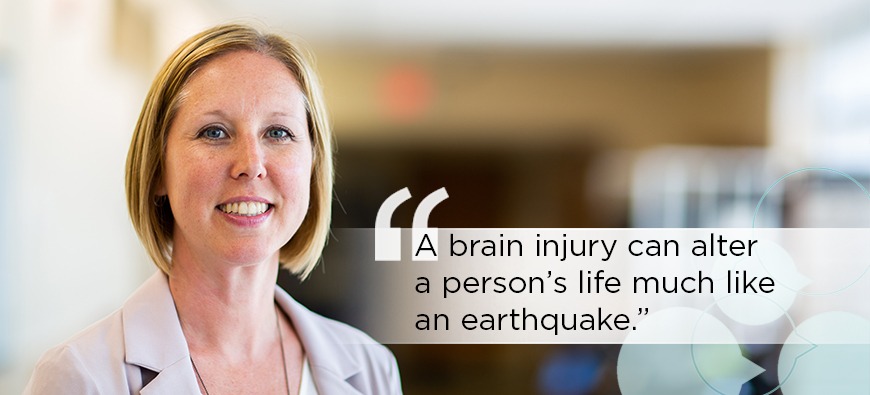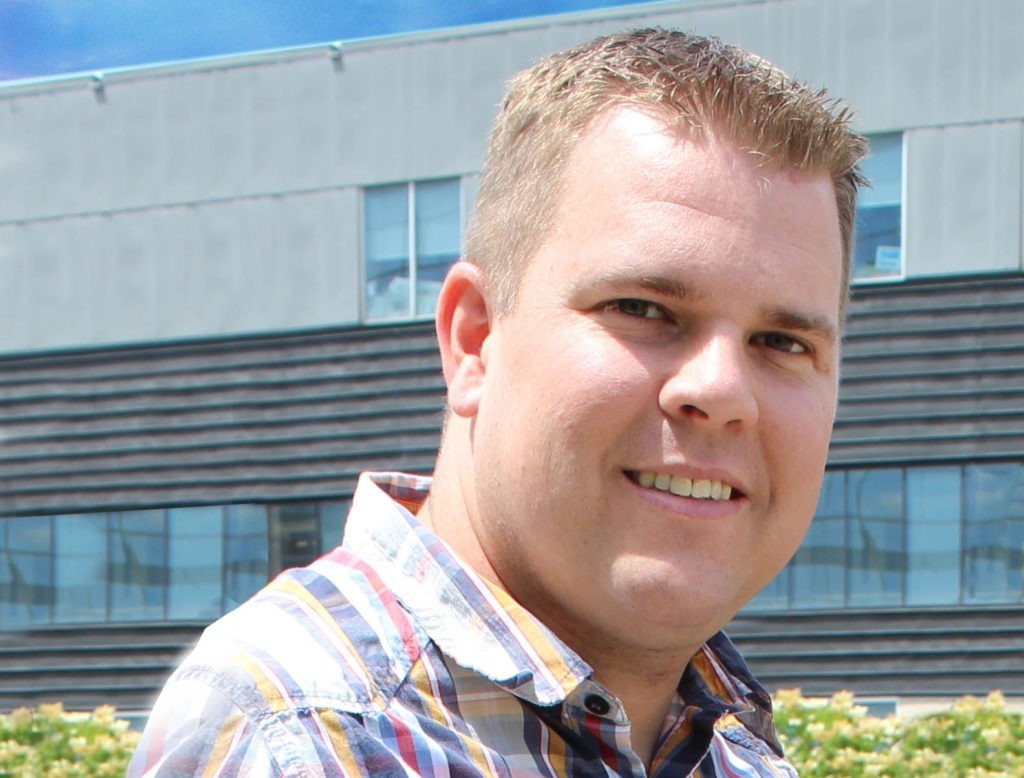
Introducing a neuropsychologist in Acquired Brain Injury Community Services
Dr. Emilie Sheppard is a neuropsychologist in the Acquired Brain Injury (ABI) Community Services team at Hamilton Health Sciences (HHS). She completed her residency with the hospital in 2017, then worked in the private sector before returning to HHS this past February.
June is Brain Injury Awareness Month. We spoke to Sheppard about what moved her to pursue a career in neuropsychology, the impact of the COVID-19 pandemic on people with an ABI, and what Brain Injury Awareness Month means to her.
What does Brain Injury Awareness Month mean to you?
The awareness factor is important. ABI is an invisible injury, which often leads to difficulties understanding the injury itself, as well as its functional implications in daily life, for both the individual with the injury and their family or support system. I’m hopeful that this event will spread awareness about the reality of ABI and help guide the process of recovery.
It’s important to acknowledge that ABI also contributes to various mental health difficulties including depression, anxiety and trauma. It frequently results in secondary factors, including post-traumatic headaches, chronic pain and disrupted sleep.
Brain injury is something that literally happens within a few seconds.
ABI also greatly impacts the families and support systems of the injured individual. A large shift in family or relational dynamics is frequently seen and awareness and intervention is also very important.
Brain injury is something that literally happens within a few seconds. One moment, you’re building your life, setting goals, and within a few seconds, this can suddenly change, and the resulting consequences from the injury can persist for a long time. It can be very challenging to adapt to.
But there can be a road to recovery. Brain injury itself is not degenerative. The brain is fragile, yet there are intricate organic recovery processes which can be supported through multidisciplinary rehabilitation and intervention.
It’s important to know what ABI is and to prevent it as much as you can. Your brain is a fragile thing.
Neuropsychology is a complex field. Who or what inspired your career in it?
I’ve always found human behaviour and its association to brain function quite intriguing.
It’s a field of study that is ever expanding, with vast opportunities to research and discover the complexities of brain function, their association to human behavior, disruption after injury, and pathways to recovery. I carved my academic path to grasp as much of that opportunity as possible, and continue carving my career in the same manner.
How is a new patient introduced to your care? What is the process like?
Patients are typically referred from the community to our program. A neuropsychologist’s role is to complete a comprehensive assessment, to better understand the nature, cause and consequences of the brain injury.
A diagnostic interview is completed and we gather insight from the injured individual’s family, support system and the rehabilitation team. We use psychometric measures to assess various cognitive functions – such as attention, memory, and executive functioning – and see how different areas of the brain communicate to each other. We also assess the patient’s emotional and behavioural status. Then I would use all the information together to determine the nature and severity of challenges or impairments in the context of the injury.
These assessment results allow us to create a detailed treatment plan to provide intervention through cognitive remediation, emotional and behavioural symptom reduction/stabilization, and functional restoration. The treatment plan involves care from health care providers like myself, and also many members of the person’s rehabilitation team.
How has the pandemic affected your patients and their support systems?
It’s affected them in many different ways. Individuals with ABI often have difficulty adjusting to daily stressors and, even more so, things that are unpredictable. With COVID, much of daily life has become unpredictable and quite different, requiring frequent adjustments to all of our daily lives.
many people with ABI felt validated in their daily lives
This has tended to intensify daily difficulties and challenges for people with brain injuries. On top of that, access to intervention and treatments has reduced and opportunity for adaptive coping is relatively restricted.
Somewhat ironically, however, many people with ABI felt validated in their daily lives and restrictions as a result of the pandemic. They felt that others now have a glimpse into their everyday lives and how restricting, isolating and frustrating it can feel. Some patients are relieved that there’s no pressure to be social and get together during COVID, although this is a risk for increased isolation.



